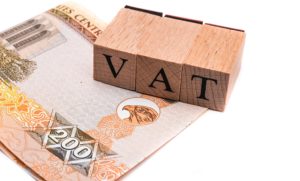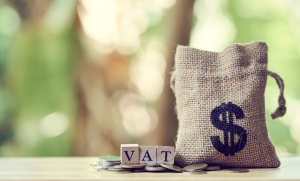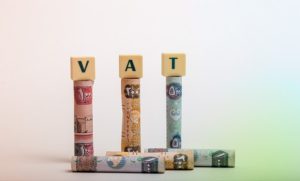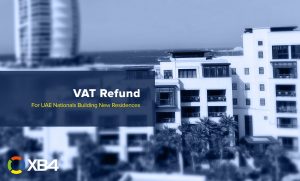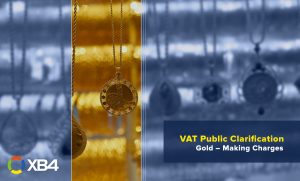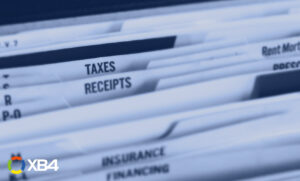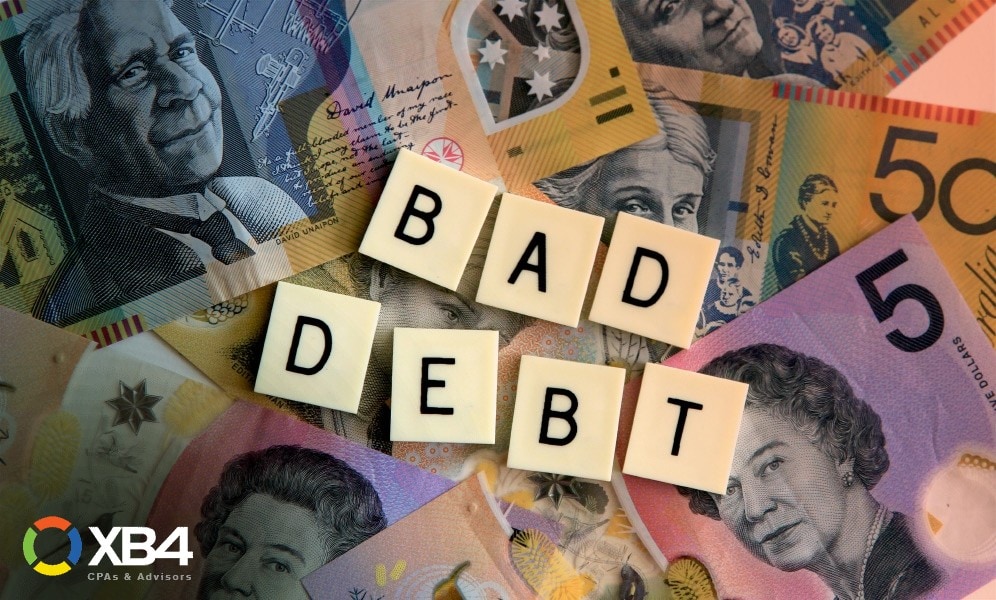
Let’s first understand what is a ‘Bad Debt’?
An amount that is due from a customer and is not paid on the agreed time and moreover the recipient did not pay and rejected the amount is known as Bad Debts for the taxpayer. However, the rejection that is coming from recipient’s end could be due to any reason which could be for instance a dispute in the delivery of goods or services received, termination of business activities etc.
How Bad Debt is associated with VAT?
At the time when a sale activity is performed, supplier charges to the recipient of the goods and services and the amount would appear as in supplier’s account during its return. This amount in normal circumstances is paid to the tax authority (FTA) (after doing the necessary adjustments against the eligible input) which is paid irrespective of the payment from the recipient.
We’ll look into a simple example below to have a clear projection in our minds:
For instance: A supplier made a sale of goods worth AED 5000/-, would eventually be charging AED 250/- as VAT. This respective amount of (AED 250) is paid to the tax authority in the same return period. Although the amount is yet to be received by the recipient and irrespective of that, supplier has to file the return and pay the amount to the FTA within the due date. If the recipient doesn’t pay the agreed amount to the supplier, the supplier is losing AED 250/- along with the principal amount of AED 5000/-
Now there’s a question that arises whether this amount AED 250/ that has been paid to FTA and had not been received from the recipient yet will be recovered from the Federal Tax Authority or not?
VAT recovery under Bad Debt scenario
The registered businesses in the UAE under UAE law are able to recover the paid on the purchases goods and services that are consumed for business purposes, provided that the business had received the tax invoice and it pays or has an intention to make the payment which is further supported with a consideration that the supply will take place in a tenure of 6 months, once the date of payment for the particular has been duly agreed. Nonetheless, supplier become oblige to pay the irrespective of the consideration received from the recipient. The reason behind such mechanism is that the supply of goods had taken place earlier to that of the invoice date or the date of payment from the recipient.
On the contrary, the recipient is in a state of recovering the input as he had already received the supply of products or services which is irrespective of the payment to the supplier, however it is intended that he will be paying the amount within a tenure of 6 months from the due date of payment in accordance with the agreed terms. Particularly with this apprehension, below situation may come into attention:
- The supplier has not received the payment from the recipient form the date of supply but has already paid to FTA.
- The recipient had recovered the input however he had failed to pay the amount to the supplier which was due to be paid in 6 months from the due date of supply.
Therefore, in order to protect the supplier and further to recover the Input VAT from the recipient as stated in the situations above, a strategy named ‘Bad Debts Adjustment’ has been introduced by FTA incorporated with its regulation which can be reinforced to implement to such unpredicted cases.
So, what happens under this particular law? How is it exercised? We will look into every detail of it to have a sound understanding to deal with.
Under this particular strategy of made bad debt adjustment, a supplier is permitted to make a reduction in the liability while filing the return and subsequently a recipient need to reduce his input in return for a period as stated above in which this certain situation had occurred.
In order for a supplier to acquire relief package under Bad Debt scheme, there are certain set of conditions that is required to be fulfilled by supplier as well as the recipient. Let us have a look on those conditions in which supplier and recipient needs to meet under Bad Debt adjustment strategy.
Conditions to be met by supplier in order to claim Bad Debt adjustment where the registered supplier can reduce the tax for a current tax period so that the tax paid in the previous period can be adjusted, provided if all the below stated criteria is satisfied:
- Goods and services have been delivered and the tax that was due has been charged and paid.
- Acknowledgement for the supply has been written off as Bad Debt in the accounts of supplier as fully or partially.
- Six months have been passed since the supply was made
- The supplier has informed about the written off to the recipient for the amount of consideration against which the supply was made.
Conditions need to be met by the recipient that falls under Bad Debt adjustment scheme. The business received goods and services needs to reduce input tax for the current tax period which was ever claimed during previous tax tenure provided where the payment was not performed to the supplier and all of the below criteria is met:
- A notification has been received from supplier for the amount being written off and the registered supplier had reduced the as mentioned in the above criterion for the supplier.
The recipient had recovered the input in the previous filing return against the goods and services received.
- The amount was not paid to the supplier for over a period of 6 months which was agreed at the time of delivery.
If you may have noticed, it seems that the conditions are pretty similar to that of a supplier when here the recipient needs to reduce the input tax in his return which will be continued for over a period that was agreed upon which was at the time of receiving the supplies which has been written off by the supplier.
Important Note:
An emphasis on a fact and a key factor to make a note of is that the adjustment scheme under Bad Debts can only be applicable and will be considered under FTA law only if all of these conditions as stated in above points are met. Besides the amount (supposed to pay/receive) that has been written off should reconcile in both the books of supplier as well the recipient. The main point of this provision is merely to safeguard the supplier and to recover the Input that was recovered by the recipient earlier during the returns. This strategy is effective often it becomes difficult to liaise with the recipient and to move along in the business activities and mostly the cases of Bad Debts are written off which comes as a result of non- traceability of the recipient in certain circumstances.







